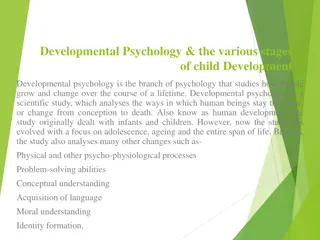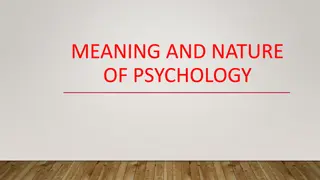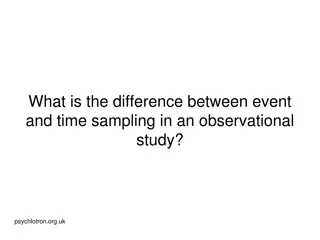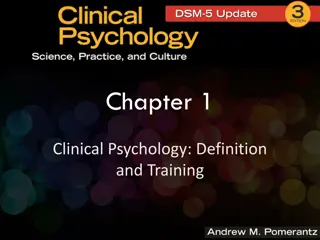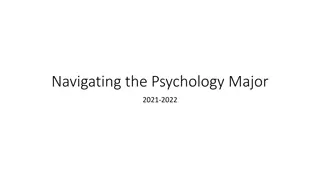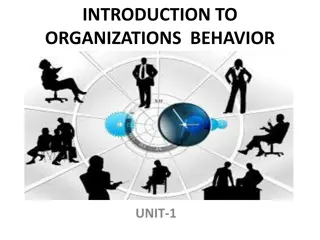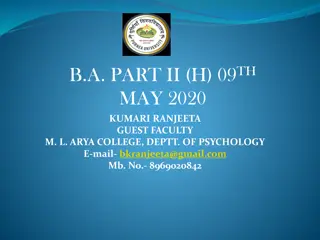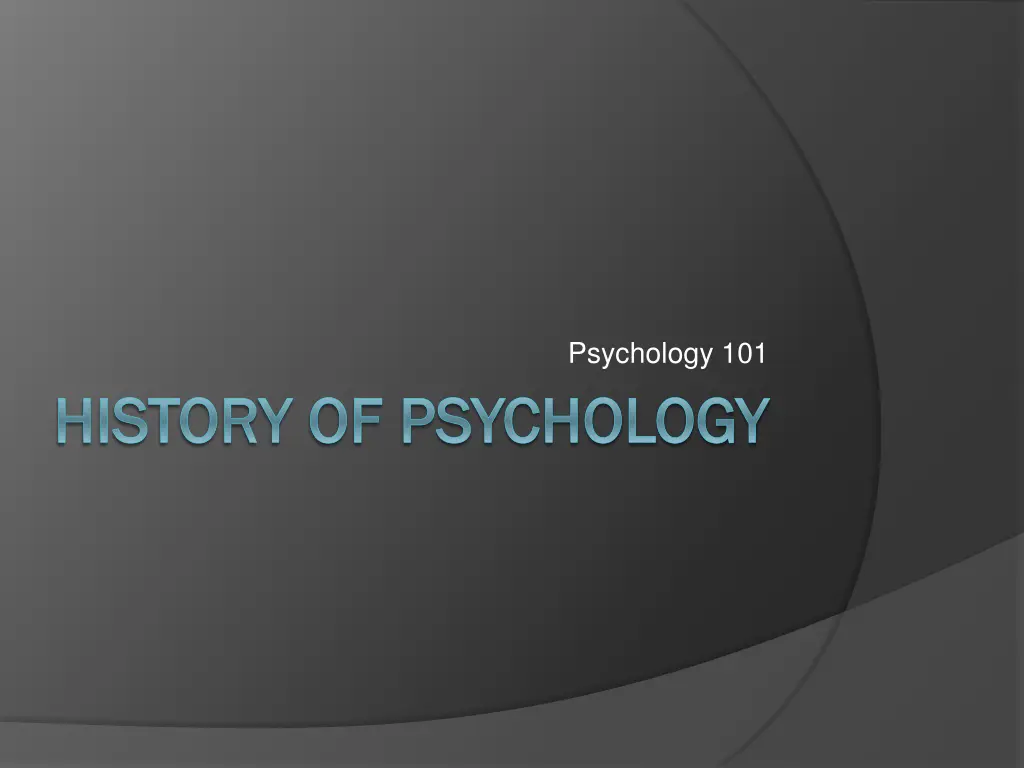
Evolution of Psychology: Key Figures and Movements
Unveil the journey of psychology through Wilhelm Wundt's establishment of the first research lab in 1879 to the exploration of consciousness by Edward Titchener in Structuralism and William James in Functionalism. Witness the birth of the American Psychological Association, delve into the realm of Psychoanalysis by Sigmund Freud, and examine Behaviorism through John B. Watson's focus on observable behavior. Explore the diverse perspectives that have shaped the field of psychology over time.
Download Presentation

Please find below an Image/Link to download the presentation.
The content on the website is provided AS IS for your information and personal use only. It may not be sold, licensed, or shared on other websites without obtaining consent from the author. If you encounter any issues during the download, it is possible that the publisher has removed the file from their server.
You are allowed to download the files provided on this website for personal or commercial use, subject to the condition that they are used lawfully. All files are the property of their respective owners.
The content on the website is provided AS IS for your information and personal use only. It may not be sold, licensed, or shared on other websites without obtaining consent from the author.
E N D
Presentation Transcript
Psychology 101 HISTORY OF PSYCHOLOGY HISTORY OF PSYCHOLOGY
Psychology is Born 1879 Wilhelm Wundt (1832-1920) Established first psychological research lab at University of Leipzig 1881 first journal devoted to publishing psychological research established
Structuralism 1890s Edward Titchener (1867-1927) Task of psychology is to analyze consciousness into basic elements and investigate how these elements are related Use of introspection
Functionalism 1890s William James (1842-1910) Psychology should investigate the function/purpose of consciousness Stream of consciousness
Functionalism Contd How do people adapt their behavior to the world around them? Investigation of mental testing, developmental patterns, effectiveness of educational practices, behavioral differences between men and women
Birth of the APA G. Stanley Hall (1844-1924) founds American Psychological Association in 1892
Psychoanalysis Sigmund Freud (1856-1939) Influential and controversial Focus on unconscious
Psychoanalysis Contd Psychoanalytic theory- attempt to explain personality, motivation, and mental disorders by focusing on unconscious determinants of behavior Carl Jung Alfred Adler Theory attacked for belief behaviors is dominated by primitive sexual urges
Behaviorism 1950s and 1960s John B. Watson (1878-1958) Scientific psychology should study observable behavior only
Behaviorism contd Nature vs. Nurture Watson believed all behavior is governed by environment alone Rise of animal research Behaviorism criticism for using simple animal behavior
Behaviorism contd B.F. Skinner (1904- 1990) Internal mental states exist, but cannot be studied scientifically, therefore there is no need to study them
Behaviorism Contd Skinner s fundamental principle: organisms will repeat responses that lead to positive outcomes and not repeat responses that lead to neutral or negative outcomes ex. Children crying We are controlled by external stimuli
Behaviorism and Psychoanalysis Most influential schools of thought in 1950s, but not everyone agreed with their views Both criticized for suggesting people are not masters of own destiny Both failed to recognize unique qualities of human behavior
Humanism 1950s Carl Rogers (1902- 1970) Emphasis on unique qualities of humans- especially freedom and potential for personal growth
Humanism contd People have a basic need to evolve as human beings and fulfill their potential Abraham Maslow (1908-1970)
Psychology as an Applied Science World War II (1939-1945) Academic psychologists forced to be clinicians Clinical Psychology: branch of psychology concerned with the diagnosis and treatment of psychological problems/disorders
Cognitive Psychology Cognition- mental processes involved in acquiring knowledge Renewed interest in the 1950s and 60s Advances made in studies of memory, language, problem solving Mental processes affect how we behave
Biological Bases of Behavior 1950s and 1960s Interrelationship between mind body and behavior highlighted by discoveries in the field Ex. Rat pushing button for pleasure Biological perspective- much behavior can be explained by bodily structures and biochemical processes that allow an organism to behave
Cultural Diversity in Psychology Psychology= Western science Culture as a determinant of behavior Ex. Arranged marriage What brought about an increase in interest of culture in psychology?
Evolutionary Psychology Examines behavioral processes in terms of their adaptive value for members of a species over many generations Behavioral patterns are a product of evolution just as anatomy is Natural Selection favors behavior that enhances reproductive success
Positive Psychology Martin Seligman (1942-) Uses theory and research to better understand the positive, adaptive, creative, and fulfilling aspects of human existence
Positive Psychology Contd 3 Areas of Interest Positive subjective experiences (positive emotions) Positive individual traits (strengths, virtues) Positive institutions and communities (fostering strong families, healthy work environments, etc.)



